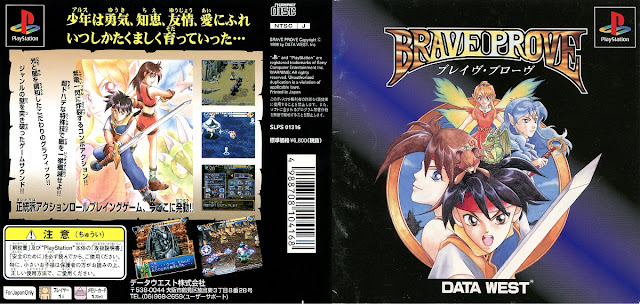Gone But Not Forgotten Video Game Developers/Publishers Lost 2000-2017 - Mattel Interactive
Gone But Not
Forgotten Video Game Developers/Publishers Lost 2000-2017
Mattel Interactive formally Mattel Media up until 1999 were a
video game publisher and distributor largely for video game adoptions of Mattel
owned properties such as the Hot Wheels and Barbie toy brands, initially the
company would focus on CD-ROM based software however the company soon after
moved into the video game market.
Mattel Interactive if you include the years they were Mattel Media
were involved in the video game industry for six years from their initial founding
by Mattel in 1995 up until the companies splitting up by Gores Technology Group
in 2001.
During that time Mattel Interactive published around 21 games (maybe more) in addition to Mattel owned IP’s Mattel Also published several Sesame
Street games as well as other tv show adaptations, such as a tie in to The Wild
Thornberrys, Arthur The Aardvark tv series and the film tie in to the 2000
releases Rugrats in Paris The Movie.
Rugrats In Paris movie adaption as well as several games bases on Sesame Street were published by Mattel Interactive.
Largely though Mattel Interactive would rely on their own IP’s
with at least seven Barbie related video games published by the company. From one
of the earliest releases in the above averagely received Barbie Fashion
Designer for Windows and Mac, and the poorly received Barbie: Ocean Discovery
in 1997.
Or the influx of Barbie games from 1998 to 2000 with Barbie
Adventure: Riding Club, Detective Barbie: The Mystery Of The Carnival Caper!, Barbie
Race and Ride, Barbie Super Sports, Detective Barbie 2 The Vacation Mystery, Detective
Barbie: The Mystery Cruise, Barbie: Magic Genie Adventure and Magic Fairy Tales
Barbie As Rapunzel + Hot Wheels Custom Car Designer all coming over a two year
period.
The Mattel owned Barbie IP was prolific in the late 90s
Back in 1998 Mattel had agreed to acquire The Learning Company, a
company that specialises in educational software a good mix for the two
companies with Mattel agreeing to buy out The Learning Company for $4.2
billion. It was after this buyout that Mattel Media would change their name to
Mattel Interactive with The Learning Company becoming a subsidiary of Mattel
Interactive.
The Learning Company acquisition is considered by many as one of the worst acquisitions of all time
This merger however was short lived, in 2000 Mattel had agreed to
sell Mattel Interactive and The Learning Company to the Gores Technology Group.
This would be a major financial loss for parent company Mattel.
Who selling both Mattel Interactive and The Learning Company to Gores at a loss of an estimated $3.6 billion on what they had paid for just The Learning Company two years earlier. Several prominent business journalists have commented over the years that the acquisition of The Learning Company by Mattel is one of the worst acquisitions of all time.
The final game that Mattel Interactive would published before their sale and division was an adaption of the 2000 TV show Max Steel, which itself is based on the Mattel owned Max Steel action figure, titled Max Steel Covert Missions and released exclusively on the Dreamcast, sadly like many Mattel Interactive games it was received with a largely mixed to poor response from critics unlike the tv show which lasted 3 seasons and even got a reboot in 2013.
Who selling both Mattel Interactive and The Learning Company to Gores at a loss of an estimated $3.6 billion on what they had paid for just The Learning Company two years earlier. Several prominent business journalists have commented over the years that the acquisition of The Learning Company by Mattel is one of the worst acquisitions of all time.
The final game that Mattel Interactive would published before their sale and division was an adaption of the 2000 TV show Max Steel, which itself is based on the Mattel owned Max Steel action figure, titled Max Steel Covert Missions and released exclusively on the Dreamcast, sadly like many Mattel Interactive games it was received with a largely mixed to poor response from critics unlike the tv show which lasted 3 seasons and even got a reboot in 2013.
Max Steel Covert Missions based on the 2000 TV show was the last game published by Mattel Interactive
It took the Gores Technology Group less than a year to being their
dismantling of Mattel Interactive, first by splitting the company up into three
separate divisions, with GAME Studios in charge of the video games side of the
company, The Learning Company would still exist and would still continue with
educational software developed and Brøderbund which would focus on Home
Productivity Software.
The three divisions would not last long with the Gores Technology
group however, GAMES Studios would be sold to French publisher Ubisoft in the
March of 2001. The Learning Company was acquired by Riverdeep Interactive
Learning Limited in 2001, with Brøderbund joining them in August of 2002. The
Learning Company and Brøderbund became a part of Houghton Mifflin Company in
2006 when Riverdeep merged with the company.
Written By
P J Gibbon











Comments
Post a Comment